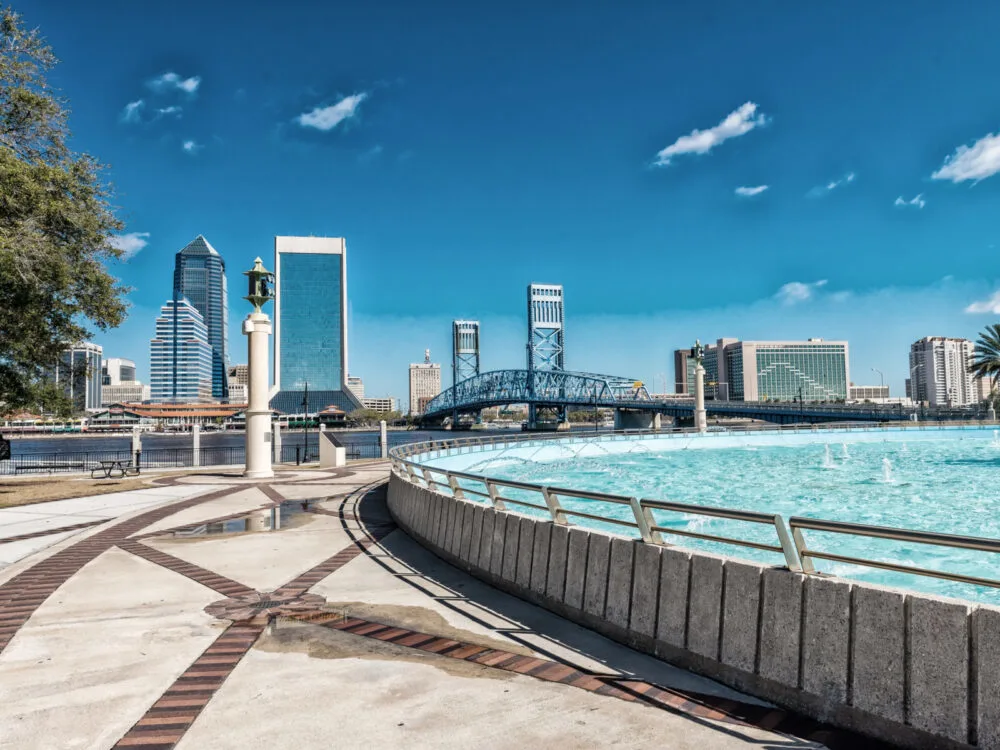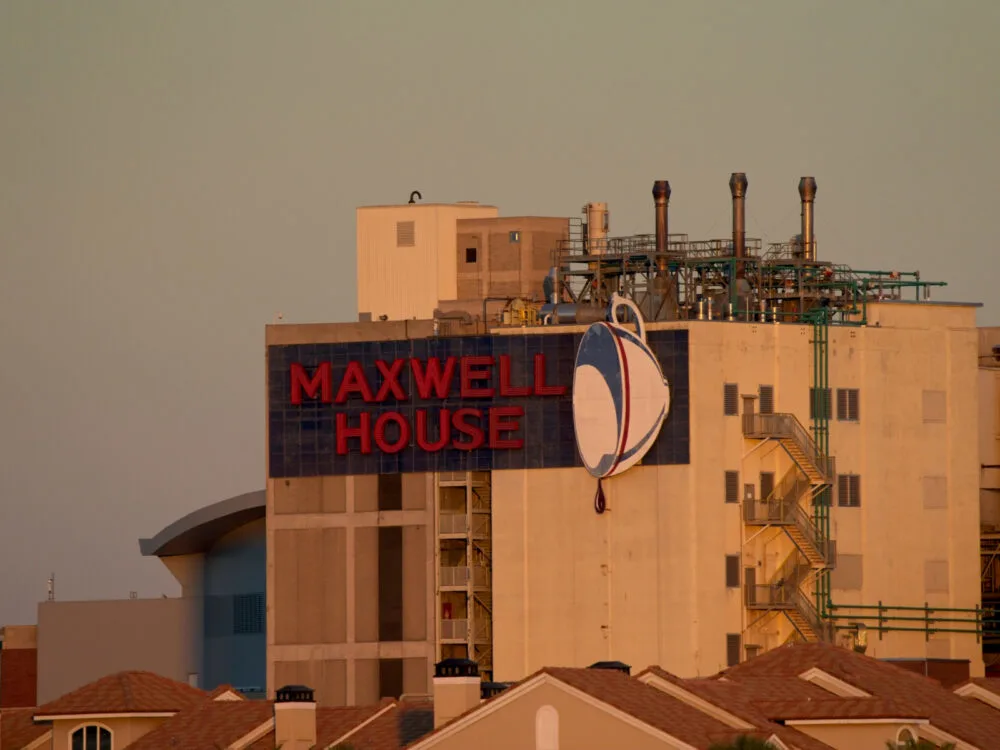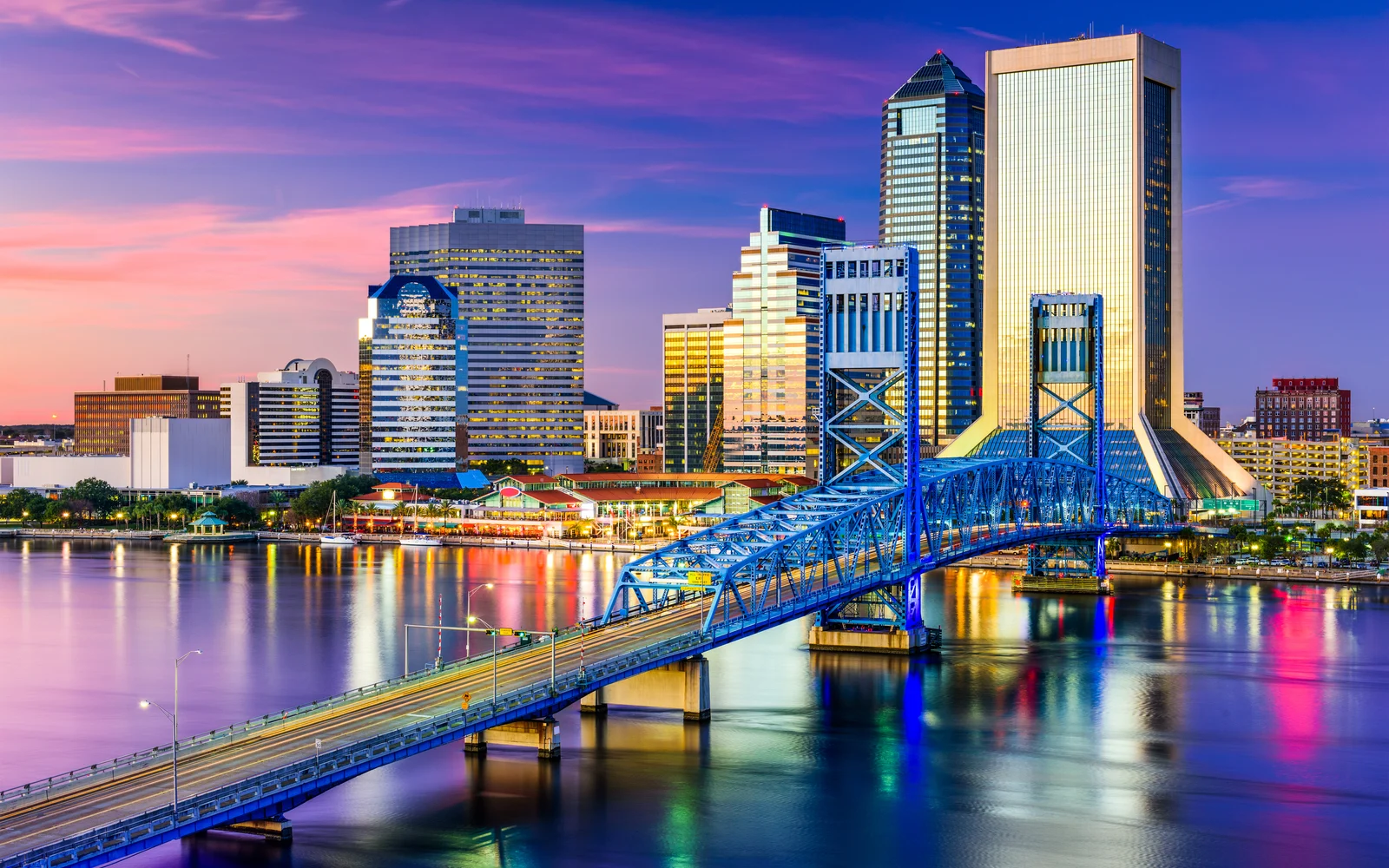Is Jacksonville safe to visit in 2025?
If you pay attention to the news, Florida seems like a bizarre, lawless wasteland. While we aren’t here to confirm or deny such an allegation, we can still shed some light on how safe some areas of the Sunshine State might be.
Dubbed the “Murder Capital of Florida,” Jacksonville is often seen as an intensely dangerous place. However, many of these statements are said on sensationalist headlines and uninformed opinions.
If you’re looking for a glance into how safe Jacksonville, Florida truly is, we’re here to help! Read on for a quick read-up on how safe the Gateway to Florida is.
Is Jacksonville, Florida Safe to Visit?

GagliardiPhotography/Shutterstock
Overall, Jacksonville is perfectly safe to visit. That said, there are a few things that a visitor should know before they begin wandering the city, believing it a perfectly-safe sanctuary.
For example, the city is called the “Murder Capital of Florida” due to its high murder rate. Compared to other larger cities such as Orlando or Miami, the amount of murders is lower.
However, when compared on a per capita basis, Duval County (which Jacksonville calls home) takes the lead. Past the murder rate, many other crimes are relatively frequent in Jacksonville.
Robbery and assault both occur around Jacksonville with some frequency. Vehicle-related crimes like DUIs are reported. Break-ins and burglaries also happen with a decent level of commonality.
Crime in Jacksonville, Florida
In previous years the crime rate has decreased while the murder rate has remained steady. Part of this has been attributed to budget cuts in law enforcement, while others have related it to gang violence.
In 2012, many of the murders were murder-suicides. Still, the overall number of murders that year was lower than the previous year.
Using the Jacksonville Sheriff Crime map can help you see what sorts of crimes are common and where they’ll most likely occur. For example, vehicle-related crimes are most common near the inner city of Jacksonville.
Towards the beachlines, alcohol-related or violent crimes become more common. Logically speaking, this is due to the density of what you’ll find in each area.
Jacksonville is called the beachy vacation spot, and it’s far from uncommon for beachgoers to overindulge in alcohol. Meanwhile, the inner city has more vehicles, leading to more vehicle-related crime.
The crime rate also increases during the night hours – this is especially common in touristy cities where people are more likely to be unfamiliar with the city. As tourists go out at night, local criminals can more easily take advantage of them.
Unattended vehicles, insecure hotels, and Air B&Bs are also frequent causes. To avoid crime, you should not travel alone, which is true for any city.
You should stick to more densely-populated areas and try not to be out late at night unless necessary. The more touristy areas often have more police and are likely safer than others. Avoid the “shady” areas or the outskirts of the city, especially at night.
Avoiding Bad Neighborhoods

Jacksonville, Florida / USA – November 28 2019: Maxwell House Coffee building downtown Northbank/Roy L Sprague/Shutterstock
Jacksonville has several areas that some consider unsafe. 29th and Chase, Mid Westside, Springfield, Moncrief Park, and East Jacksonville are all areas you should avoid as a tourist.
While these are far from horrifically dangerous sections of the city, much of the crime does tend to focus here. Additional areas include Mixon Town, Lackawanna, New Town, and Midtown. Allendale is also an area that some avoid.
Few of these areas are vital for traveling, making them easy to avoid. Study a map beforehand and plan routes that don’t go through these areas. That said, these areas are crucial to avoid at night. During the day, there are rarely issues.
The same is true for Downtown Jacksonville. Including the districts of Brooklyn, LaVilla, Southbank, and Northbank, Downtown Jacksonville is mostly a business district. Because of this, there aren’t many reasons to be out at night.
At nightfall, Downtown Jacksonville is mostly deserted – this makes tourists an easy pick for local gangs to use as targets for whatever they may decide on.
While gangs aren’t incredibly common in Jacksonville, they still have a presence. Pickpockets, muggers, and other thieves are more likely to find a few wandering tourists more vulnerable in this area.
The best way to avoid this is to do your partying towards the beachfront areas instead. Most cities have their downtown areas as nightlife centers, whereas Jacksonville’s is towards the beach.
There are plenty of restaurants, bars, and beachfront clubs on the Jacksonville beach that you can spend your night at instead. Avoiding the bad neighborhoods of Jacksonville is refreshingly easy. Familiarize yourself with the layout of the city beforehand.
Do your best to avoid these areas, especially at night. Make plans that don’t involve these areas unless your visit makes them necessary. If you follow these easy tips, you shouldn’t struggle to avoid these areas.
Where to Stay
With so many “bad” neighborhoods, where are the good ones? It’s important to know where you’re going to spend your time when you’re in Jacksonville instead of only knowing where to avoid. For leisure, the beachfront areas are typically much safer.
Natural parks and historical attractions have few, if any, safety issues. Tourists are more vulnerable to crimes such as theft, but these aren’t usually targeted by gang violence or other localized crimes.
Because of this, touristy areas are a great place to be. Jacksonville Beach is arguably the safest place in Jacksonville. The high population of tourists makes it so that criminals usually don’t target people in the area due to the higher likelihood of being caught.
There are generally more police officers in this area as well. Logically speaking, if a crime does happen, you’re less likely to be the target than in sparsely-populated areas.
For a nicer, more chic area, Ponte Vedra Beach is another great location. This relatively high-income location is a seaside resort that tends not to have as many people. Security is typically high, and the beaches are much less crowded as well.
It’s a great place to stay if it fits your needs for your visit! Another great area is Neptune Beach. The more family-oriented locale is quieter and tends to have more wholesome, family-focused fun and entertainment.
It’s a sleepier area that won’t be as active at night, letting you and your family enjoy the safety of your resort stay. Atlantic Beach is another location that fits this description, should Neptune Beach not fit your desires.
So, Is Jacksonville Safe to Visit in 2025?
You can visit with your safety assured no matter what’s bringing you to Jacksonville. While far from without threat, the “Murder Capital of Florida” is much safer than one may think.
Avoid suspicious areas at night, stay in more touristy locations, and plan your visit to try and have a safer experience. To learn more about safety during your visits across the country, feel free to browse our website for more information. Safe travels!



